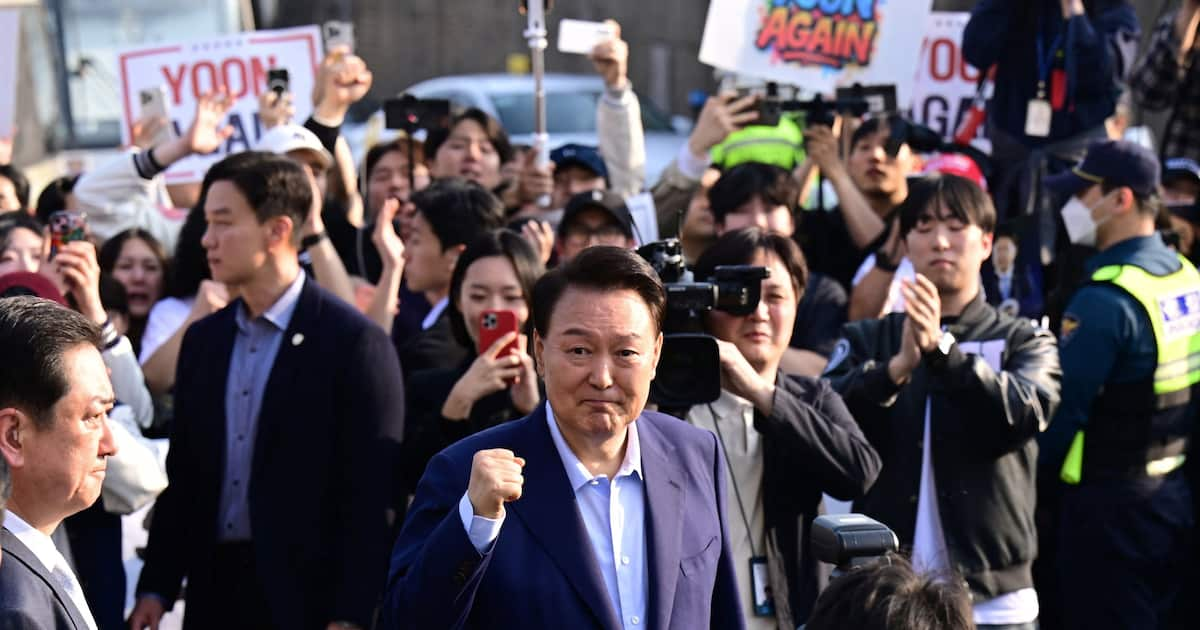Rethinking Conservatism: South Korea's Post-Yoon Era
Introduction: The conclusion of Yoon Suk-yeol's presidency marks a pivotal moment for South Korean conservatism. His single term, characterized by controversies and a perceived disconnect with the public, leaves the conservative movement at a crossroads. This article delves into the challenges and opportunities facing conservatives in the post-Yoon era, exploring potential shifts in ideology and strategy as they navigate the evolving political landscape.
The Yoon Presidency: A Legacy of Challenges
Yoon Suk-yeol's presidency was undeniably turbulent. His approval ratings consistently hovered near record lows, hampered by factors including:
- Controversial Policies: Certain policy decisions, particularly those concerning economic reform and relations with North Korea, faced significant public backlash.
- Communication Issues: A perceived lack of effective communication and engagement with the public contributed to a sense of disconnect and distrust.
- Internal Party Divisions: Fractures within the ruling party further weakened his administration and hindered effective governance.
These issues significantly impacted the public perception of conservatism in South Korea, creating an opening for alternative approaches.
Redefining Conservatism: Key Areas for Reconsideration
The post-Yoon era demands a critical reassessment of conservative principles and strategies. Key areas requiring reconsideration include:
1. Economic Policy: Addressing Inequality
The previous administration's economic policies were criticized for exacerbating income inequality. Future conservative approaches need to demonstrate a commitment to inclusive growth, addressing the concerns of ordinary citizens. This might involve:
- Focus on Social Welfare: A more robust social safety net could appeal to a wider segment of the population.
- Support for Small Businesses: Policies aimed at fostering small and medium-sized enterprises (SMEs) are crucial for economic diversification and job creation.
- Sustainable Development: Integrating environmental considerations into economic policy will resonate with younger, environmentally conscious voters.
2. North Korea Policy: Balancing Security and Dialogue
Yoon's hardline stance towards North Korea yielded limited success. Future conservative approaches must strike a balance between maintaining national security and exploring avenues for dialogue and potential reconciliation. This requires:
- Strategic Engagement: A more nuanced approach that combines deterrence with diplomatic efforts.
- International Cooperation: Strengthening alliances with key partners like the United States and Japan.
- Focus on Denuclearization: A clear and achievable framework for denuclearization is essential.
3. Social Issues: Bridging the Generational Divide
Conservatism often struggles with issues related to generational shifts in values. To remain relevant, conservatives must:
- Engage with Younger Voters: Addressing concerns of younger generations about climate change, social justice, and economic opportunity.
- Modernizing Messaging: Utilizing effective communication strategies to connect with diverse audiences.
- Promoting Inclusivity: Demonstrating a commitment to inclusivity and understanding of diverse perspectives.
The Path Forward: Opportunities for Renewal
The challenges facing South Korean conservatism are significant, but they also present opportunities for renewal and revitalization. By embracing a more inclusive, pragmatic, and forward-looking approach, the conservative movement can regain public trust and chart a successful course for the future. This includes:
- Investing in Youth Leadership: Nurturing the next generation of conservative leaders who understand the concerns of younger generations.
- Promoting Internal Unity: Overcoming internal divisions and presenting a united front.
- Building Bridges with Civil Society: Engaging with diverse groups and fostering collaboration.
Conclusion: The post-Yoon era presents a critical juncture for South Korean conservatism. A willingness to adapt, innovate, and engage with the changing needs of the nation will determine its future success. The path forward demands a thoughtful reconsideration of core principles and a commitment to building a more inclusive and relevant political movement. The future of South Korean politics hinges on the success of this re-evaluation.
Further Reading: [Link to a relevant academic article on South Korean politics] [Link to a reputable news source covering South Korean elections]
